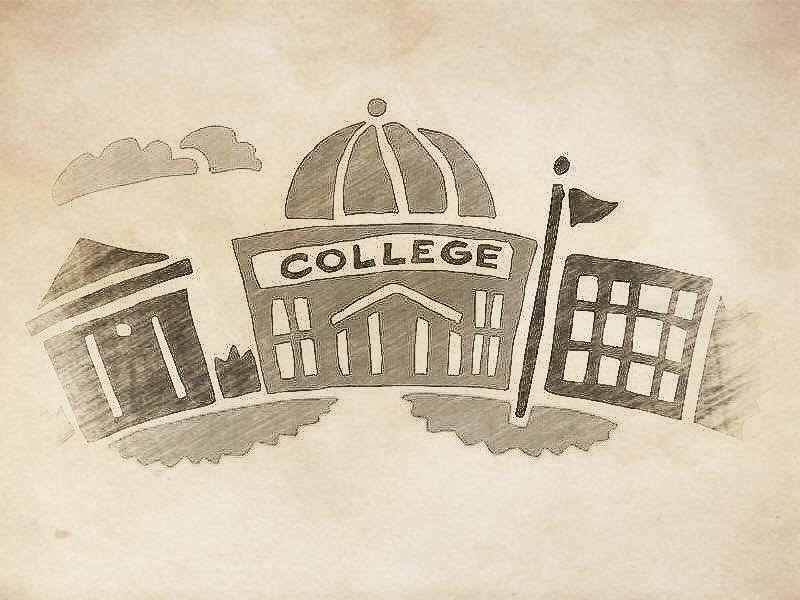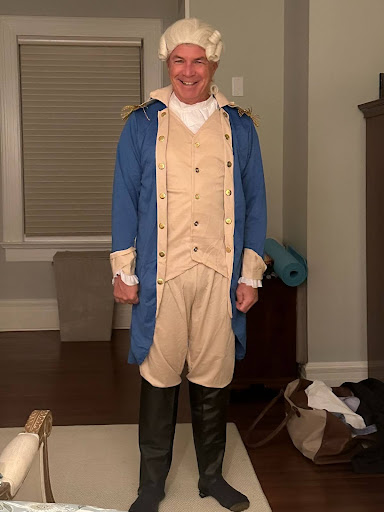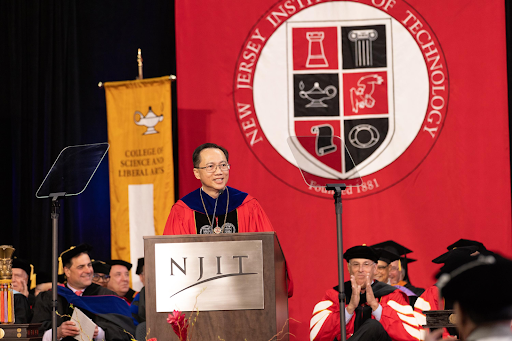College Visits – A Step Closer to Reality
Art credits to Julia Sun!
November 12, 2015
Sitting in a lecture hall, listening to alumni rambling on and on about how unique their cheese club is, and walking the hour-long university tour… If you have heard about how repetitive college visits can become from upperclassmen or older siblings, you might easily become exhausted or exasperated with the college process before you even begin. However, the seemingly redundant process may mean more than what you expected, and hidden lessons may lie beneath the surface.
Almost every college visit includes an hour-long information session in which a representative of the college proudly presents an overview of the university and the admission process and ends with a brief tour around the campus. Many students might value college visits as a chance to see if the dorms have air conditioning, a big closet space, or clean hallways; they might also enjoy a meal at the university’s cafeteria to personally experience the food. However, at the end of the day, there are many more components to take into consideration upon completing the college visit experience.
Ben Zhou ’16 remarks, “I believe a college visit is crucial for each student to experience the atmosphere of the campus and to truly determine if they would be the perfect fit for the school; I would take this opportunity to see if I would enjoy my next few years in that environment.”
Indeed, college visits are unique for each university that students visit; although the processes may seem similar, each campus provides a different environment for students to decide which they feel most comfortable in. Although rankings and academics are important, it is important to love the atmosphere of one’s chosen college in order to succeed in the long run.
Sahiba Madam ’18 expresses her eagerness to visit colleges this summer: “I cannot wait to travel to different states to personally step on the campuses. I want to visit each college in order to discover my dream college, not to mention that it would encourage me to work even harder in order to be accepted.”
Certainly, every college visit can provide a different experience. For example, at the University of Rochester, students are able to choose their own student guide to give them a tour them around campus that is specific to their potential major; this provides a closer look at the campus and more in-depth information about the major from an experienced undergraduate. At New York University, students experience a city campus situated around an urban park, surrounded by restaurants and old architecture; this would attract students who don’t necessarily yearn for a traditional campus feel. At Boston University, students are led around a different type of city campus which combines both a traditional campus and a downtown campus. While experiencing these different locations and different programs, students can learn more about the uniqueness of each campus during visits.
Finally, while touring colleges, there are many things to do to absorb the unique experience. Students could talk to current students to understand the dynamics of the campus, pick up an issue of the university’s newspaper, enjoy a meal at a local restaurant, and ask questions of admissions officers when needed. Bring a notepad and prepared questions, such as, “How diverse is the campus?”, “What opportunities are there for undergraduate research?”, or “What is the study abroad program like?” During college visits, it’s best to overcome shyness and openly ask questions to make crucial college decisions more easily.
Let’s not forget interviews; although some colleges may not require or provide on-campus interviews, it is always important to schedule one if you’re prepared. It’s just another way to show your interest to the admissions officers!
The next time you schedule a college visit, don’t forget to take some extra steps and take time to imagine the potential that the next four years offer.











Lauren • Nov 16, 2015 at 11:16 am
As someone who’s recently visited quite a few colleges and experienced quite a few tours, this article felt incredibly relevant to me. I completely agree that these visits are important if you truly want to get a feel for the college, even if they may be a bit redundant and exhausting. It’s important to think about if you’d be able to see yourself at this college, and the only way to really know is to visit.